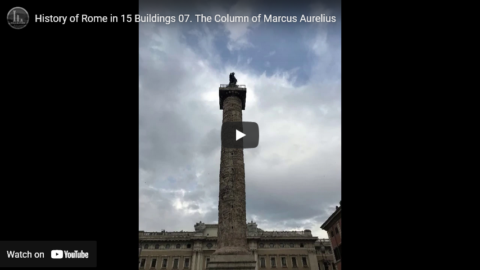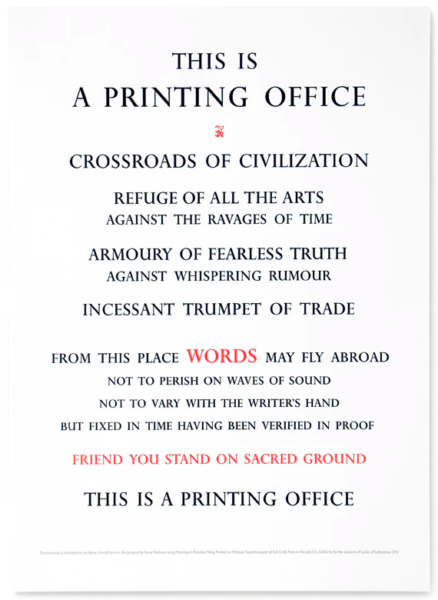Omroep Zeeland
Published 18 Mar 2020Documentary directed by Margot Schotel Omroep Zeeland (2019) about the battle of the Scheldt. An large and important battle in the autumn of 1944, which was crucial for the liberation of the Netherlands and Europe
After D-Day (6 June, 1944), the Allied Forces quickly conquered the north of France and Belgium. Already on 4 September they took Antwerp, a strategically vital harbor. However, the river Scheldt, the harbor’s supply route, was still in German hands. Montgomery was ordered by Eisenhower to secure both sides of the Scheldt, the larger part of which is located in the Netherlands, but Montogomery decided otherwise and started Operation Market Garden. He left the conquest of the Scheldt to the Canadians and the Polish Armies who then had to fight a much stronger enemy that was ordered by Hitler himself to keep its position at all costs. Even though Market Garden eventually failed, it received an almost mythological status in the narrative about the World War II, while the successful battle for the Scheldt was never really acknowledged by history.
With the cooperation of Tobias van Gent, Ingrid Baraitre, Carla Rus, Johan van Doorn ea.
Blijf op de hoogte van het laatste Zeeuwse nieuws:
Volg ons via:
Instagram: https://www.instagram.com/omroepzeeland/
Twitter: https://twitter.com/omroepzeeland
Youtube: https://www.youtube.com/c/omroepzeeland
May 5, 2022
The Forgotten Battle: The story of the Battle for the Scheldt
QotD: Critical Race Theory, the “successor ideology”
The reason “critical race theory” is a decent approximation for this new orthodoxy is that it was precisely this exasperation with liberalism’s seeming inability to end racial inequality in a generation that prompted Derrick Bell et al. to come up with the term in the first place, and Kimberlé Crenshaw to subsequently universalize it beyond race to every other possible dimension of human identity (“intersectionality”).
A specter of invisible and unfalsifiable “systems” and “structures” and “internal biases” arrived to hover over the world. Some of this critique was specific and helpful: the legacy of redlining, the depth of the wealth gap. But much was tendentious post-modern theorizing. The popular breakthrough was Ta-Nehisi Coates’ essay on reparations in the Atlantic and his subsequent, gut-wrenching memoir, Between The World And Me. He combined the worldview and vocabulary of CRT with the vivid lived experience of his own biography. He is a beautifully gifted writer, and I am not surprised he had such an emotional impact, even if, in my view, the power of his prose blinded many to the radical implications of the ideology he surrendered to, in what many of his blog readers called his “blue period”.
The movement is much broader than race — as anyone who is dealing with matters of sex and gender will tell you. The best moniker I’ve read to describe this mishmash of postmodern thought and therapy culture ascendant among liberal white elites is Wesley Yang’s coinage: “the successor ideology”. The “structural oppression” is white supremacy, but that can also be expressed more broadly, along Crenshaw lines: to describe a hegemony that is saturated with “anti-Blackness”, misogyny, and transphobia, in a miasma of social “cis-heteronormative patriarchal white supremacy”. And the term “successor ideology” works because it centers the fact that this ideology wishes, first and foremost, to repeal and succeed a liberal society and democracy.
In the successor ideology, there is no escape, no refuge, from the ongoing nightmare of oppression and violence — and you are either fighting this and “on the right side of history”, or you are against it and abetting evil. There is no neutrality. No space for skepticism. No room for debate. No space even for staying silent. (Silence, remember, is violence — perhaps the most profoundly anti-liberal slogan ever invented.)
And that tells you about the will to power behind it. Liberalism leaves you alone. The successor ideology will never let go of you. Liberalism is only concerned with your actions. The successor ideology is concerned with your mind, your psyche, and the deepest recesses of your soul. Liberalism will let you do your job, and let you keep your politics private. S.I. will force you into a struggle session as a condition for employment.
Andrew Sullivan, “What Happened To You?”, The Weekly Dish, 2021-07-09.
May 4, 2022
Good intentions to rectify problems caused by earlier good intentions in Charleston, South Carolina
Everyone seems to agree that affordable housing is a major need across North America … it certainly is in the Toronto area! In South Carolina, local politicians are doing what they can to make legal changes to encourage more affordable residences to come to market … even when the problem is at least partly caused by earlier attempts to encourage more affordable housing to come to market:

“A converted carriage house, Tradd Street, Charleston, SC” by Spencer Means is licensed under CC BY-SA 2.0
The City of Charleston is considering new legislation that would deregulate accessory dwelling units in hopes of increasing the supply of affordable housing in the city. Also known as carriage houses or mother-in-law suites, accessory dwelling units are small structures that are built in the backyards of homes, and they can be a great source of affordable housing for those in need.
The initiative, which was proposed by Councilmember Ross Appel two weeks ago, would remove red tape that is currently presenting a significant barrier for building this kind of housing. The ironic part is that the regulation which is primarily to blame for stopping the creation of these units was passed specifically to make these units more accessible.
“The city is looking at taking away a rule that requires these buildings to be affordable for 30 years,” WCSC reports, “which, Appel says, has been an obstacle for developers and homeowners.”
“We don’t want people to be artificially limited in terms of what they can charge,” Appel said. “The affordability requirement was a good-intended measure, but actually, that’s been currently in effect for the past year and a half, and we haven’t had a single accessory dwelling unit permitted since that time.”
Put simply, the affordability requirement backfired big time. Its goal was to make new accessory dwelling units more affordable, but by restricting the price people could charge it actually made them so unprofitable that people just stopped building them altogether. For all practical purposes, new accessory dwelling units might as well have been banned.
The implications are not hard to tease out. With no new accessory dwelling units to live in, people have been forced to bid up other kinds of housing, which has no doubt contributed to soaring housing prices. This is why Appel is eager to repeal this rule. He knows that building more supply is the key to bringing prices down, and he knows that regulations like this have been getting in the way of that process.
There’s a maxim in economics that this story highlights: the solution to high prices is high prices. The reasoning goes as follows. When a good like housing becomes scarce, prices naturally rise. But as prices rise, producers see an opportunity for profit and begin expanding the supply. Then, as additional supply comes to market, prices begin to fall.
Allies on Amphetamines – WW2 Special
World War Two
Published 3 May 2022We’ve heard how German forces are fuelled by stimulants like Pervitin. But are the Allies doing the same thing? Of course! Their drug of choice is Benzedrine. It’s in use as the RAF bomb German cities, as Monty’s tanks push Rommel back, and as US Marines take the fight to the Japanese.
(more…)
From “merely” censoring your words to seizing your funds
Matt Taibbi on PayPal’s recent moves to quash independent media reporting that disagrees with or contradicts the “official story”:
In the last week or so, the online payment platform PayPal without explanation suspended the accounts of a series of individual journalists and media outlets, including the well-known alt sites Consortium and MintPress. Each received a variation of the following message:
Unlike many on the list, Consortium editor Joe Lauria succeeded in reaching a human being at the company in search of details about the frozen or “held” funds referenced in the note. The PayPal rep told him that if the company decided “there was a violation” after a half-year review period, then “it is possible” PayPal would keep the $9,348.14 remaining in Consortium‘s account, as “damages”.
“A secretive process in which they could award themselves damages, not by a judge or a jury,” Lauria says. “Totally in secret.”
Consortium, founded by the late investigative reporter Robert Parry, has been critical of NATO and the Pentagon and a consistent source of skeptical reporting about Russiagate, as well as one of just a few outlets to regularly cover the Julian Assange case with any sympathy for the accused. Ironically, one of the site’s primary themes involves exploring disinformation emanating from the intelligence community. The site has had content disrupted by platforms like Facebook before, but now its pockets are being picked in addition.
This episode ups the ante again on the content moderation movement, toward the world hinted at in the response to the Canadian trucker protests, where having the wrong opinions can result in your money being frozen or seized. Going after cash is a big jump from simply deleting speech, with a much bigger chilling effect. This is especially true in the alternative media world, where money has long been notoriously tight, and the loss of a few thousand dollars here or there can have a major effect on a site, podcast, or paper.
As MintPress founder and executive director Mnar Adley points out, the current era of content moderation — characterized by private platforms either overtly or covertly working with government to identify accounts for censure — really began with PayPal’s historic decision in 2010 to halt donations to Wikileaks. In that case, PayPal acted after receiving a letter from the State Department claiming the site’s activities were illegal.
“PayPal banning donations from WikiLeaks really set up the blueprint for today’s censorship”, Adley says.
FG-42 German Paratroop Rifle
Forgotten Weapons
Published 24 Aug 2014Cool Forgotten Weapons Merch! http://shop.bbtv.com/collections/forg…
Only a few dozen of these are in private hands in the US, and they are an extremely advanced design for WWII.
Theme music by Dylan Benson – http://dbproductioncompany.webs.com
QotD: Masking a young child
I am not usually one for issuing trigger warnings, but this video of an unhappy two year old child is genuinely disturbing:
New York, where two-year-olds are forced to wear masks all day in nursery.
I have a single memory – a three second “video clip” of my brother’s fourth birthday – that I can confidently date as having happened before I was three. Humans do not seem to lay down recoverable memories of most of what happens to them before the age of four or so. Yet a child’s experiences in those early years have a profound effect on their later personality. That little boy will probably never remember that he tried again and again to push away the damp thing that made it hard to breathe but that his carers, with pitiless good cheer, always forced it back on. But he will have learned the lesson of the powerless. You are weak, they are strong. Crying and protesting do not help.
I am told that in Muslim societies where women must go fully veiled it is difficult to get the little girls into their coverings at first. But even they wait until the girls are at least five.
Natalie Solent, “The carers”, Samizdata, 2021-09-19.
May 3, 2022
The Crusades: Part 2 – The First Crusade
seangabb
Published 5 Feb 2021The Crusades are the defining event of the Middle Ages. They brought the very different civilisations of Western Europe, Byzantium and Islam into an extended period of both conflict and peaceful co-existence. Between January and March 2021, Sean Gabb explored this long encounter with his students. Here is one of his lectures. All student contributions have been removed.
(more…)
England’s class system, as documented by George Orwell and Theodore Dalrymple
I occasionally run into articles online that are clearly written to interest someone like me, and this one in Quillette by Laurie Wastell had my full attention from the title onward:
Ever since Marx, the concept of class has been foundational to sociology — as well as to almost everything else. This would not have surprised the German economist, for class, as he saw it, determines all: one’s motivations, one’s social position, even one’s consciousness. Britain, where Marx’s Capital was written, has long been known for its intricate class system, and as such is the source of much writing on the subject. Two of the most acerbic English social critics of the past century, George Orwell and Theodore Dalrymple, take class as a central subject. Drawing on firsthand experience (Orwell as a journalist, Dalrymple as a prison doctor and psychiatrist), both document in detail the suffering and privations of the class below them. Both also contend that a central cause of this poverty is the indifference of the middle and upper classes, a conclusion Marx would surely have agreed with. Yet, despite this, their work stands in flat contradiction to Marx’s central dogma that the material conditions of a society determine everything about it, including class. In their literary journalism, the authors’ social commentaries and insights into the human condition far surpass Marx’s “scientific” analysis.
[…]
That class is a function more of outlook than income was clear to Orwell, as he explains in his 1937 book The Road to Wigan Pier, which depicts both the privations of working-class life and the British class system as a whole. Orwell describes how the “lower-upper-middle-class” (Orwell’s own), generally professionals in the “Army, Navy, Church, Medicine [or] Law”, understood and aspired to all the many customs of the upper classes (hunting, servants, how to order dinner correctly) despite never being able to afford them. Thus, “To belong to this class when you were [only] at the £400 a year level was a queer business, for it meant that your gentility was almost purely theoretical.” This same dynamic applies today (though the bourgeois values aspired to now are quite different): a poor librarian is far less likely than a wealthy plumber to have voted for causes like Brexit or Trump, which are both populist and, thus, lower-class.
Themselves men of letters, both Orwell and Dalrymple understand that this class distinction is frequently signalled through language. “As for the technical jargon of the Communists,” writes Orwell, “it is as far removed from the common speech as the language of a mathematical textbook.” Such contorted academic prose means little to the ordinary worker, for whom, Orwell argues, Socialism simply means “justice and common decency”. Indeed, Orwell laments that “the worst advertisement for Socialism is its adherents” because of their distance from everyday concerns and inability to speak plainly. Summarising the problem, he quips: “The ordinary man may not flinch from a dictatorship of the proletariat, if you offer it tactfully; offer him a dictatorship of the prigs, and he gets ready to fight”.
A lifelong socialist, Orwell was repeatedly frustrated by the symptoms of this intellectual snobbery — why do the revolutionaries have such disdain for the ordinary punter? Dalrymple, meanwhile, in his essay “How — and How Not — to Love Mankind”, takes aim at its roots. Here, Dalrymple compares the life and work of Marx to his now lesser-known contemporary, Russian novelist and playwright Ivan Turgenev. Though their lives closely resembled one another’s, Dalrymple argues, “They nevertheless came to view human life and suffering in very different, indeed irreconcilable, ways — through different ends of the telescope, as it were. Turgenev saw human beings as individuals always endowed with consciousness, character, feelings, and moral strengths and weaknesses. Marx saw them always as snowflakes in an avalanche, as instances of general forces, as not yet fully human because utterly conditioned by their circumstances.”
[…]
Both writers criticise intellectuals’ pretentious jargon, but it is worth pausing over how each relates his own social position to their subject matter. In a telling passage of Wigan Pier, Orwell describes the working man who has made it into the middle class, perhaps as a Labour MP or trade union official, as “one of the most desolating spectacles the world contains. He has been picked out to fight for his mates, and all it means to him is a soft job and a chance of ‘bettering’ himself. Not merely while but by fighting the bourgeoisie he becomes bourgeois himself.” The scare quotes reflect Orwell’s mixed feelings about social class: does Orwell not believe that a middle-class career — such as his own — is an improvement over the harsh, backbreaking labour of the miners he so vividly documents? He has hit on a deep dilemma, born of a compassionate humanism that points in contradictory directions.
Ostensibly, Orwell chronicles poverty in order to change it, to shock the comfortable hearts of his readers into action. Yet, at the same time, (romanticising the poor against his own advice), he presents the dirt as liberating: squalor and poverty are in some sense more authentic, more real than bourgeois comforts. Thus, as literary critic John Carey argues, Orwell’s “phobia about lower-class dirt collides head-on with his determination to invest dirt with political value, as the price of liberty.”
History of Rome in 15 Buildings 07. The Column of Marcus Aurelius
toldinstone
Published 27 Sep 2018Roman troops file in neat lines over raging rivers and trackless mountains. They crush barbarian forces in battle after battle, leaving fields of corpses in their wake. Villages burn, captives weep – and the lonely figure of the philosopher-emperor leads his legions to victory. So the spiraling reliefs of the Column of Marcus Aurelius, subject of the seventh episode in our History of Rome, represent the brutal conflict that turned back the first wave of the barbarian invasions.
If you enjoyed this video, you might be interested in my book Naked Statues, Fat Gladiators, and War Elephants: Frequently Asked Questions about the Ancient Greeks and Romans. You can find a preview of the book here:
https://toldinstone.com/naked-statues…
If you’re so inclined, you can follow me elsewhere on the web:
https://www.reddit.com/r/AskHistorian…
https://www.instagram.com/toldinstone/To see the story and photo essay associated with this video, go to:
https://toldinstone.com/the-column-of…Thanks for watching!
May 2, 2022
“Race To The Sea” – The Failure of the Schlieffen Plan– Sabaton History 110 [Official]
Sabaton History
Published 1 May 2022In the fall of 1914, the initial mobile stage of the war on the Western Front came to an end outside of Paris and trench warfare set in. As the trench lines stretched from the Swiss border to northern France and Belgium, both sides realized that if they could head north quickly enough, they could turn the enemy’s flank and win the war NOW.
Support Sabaton History on Patreon: https://www.patreon.com/sabatonhistory
Listen to “Race To The Sea” on the album The War To End All Wars: https://music.sabaton.net/TheWarToEnd…
Watch the Official Music Video of “Race To The Sea” here: https://www.youtube.com/watch?v=m-yrj…
Listen to Sabaton on Spotify: http://smarturl.it/SabatonSpotify
Official Sabaton Merchandise Shop: http://bit.ly/SabatonOfficialShopHosted by: Indy Neidell
Written by: Markus Linke and Indy Neidell
Directed by: Rickard Eri
Free speech is different from those days when people wore tricorn hats and buckles on their shoes
At least, those who have a strong aversion to Elon Musk allowing free speech on Twitter believe things were very different back in the olden days and we can’t allow just anyone to say whatever they want in the current year, else chaos descend:
Recently, Max Boot said that social media has to be handled differently than media did in the past, because in the 1980s we only had three TV networks and we mostly communicated ideas by chiseling pictures into rocks and firing them at neighboring towns with a trebuchet. Or, I don’t know, something like that, which I talked about here.
Now a Time magazine correspondent named Charlotte Alter — more about her in a moment — says the same thing, but with different periodization:
But “free speech” in the 21st century means something very different than it did in the 18th, when the Founders enshrined it in the Constitution. The right to say what you want without being imprisoned is not the same as the right to broadcast disinformation to millions of people on a corporate platform. This nuance seems to be lost on some techno-wizards who see any restriction as the enemy of innovation.
That’s all she says about speech in the 18th century, so it beats the shit out of me what this comparison is supposed to mean, and I kind of suspect that it beats the shit out of her, too. But again, Alter’s it was different back then is no better than the last one that got on my nerves. The idea that the conflict over information now is wholly different than the conflict over information then is just the usual nonsense.
First, the Founders had just fought a revolutionary war that was born from print culture, from an explosion of written sources that were widely shared and widely contested. Someone like the Massachusetts colonial official Thomas Hutchinson absolutely thought, and said very clearly, that he was engaged in a contest with idiots who were spreading disinformation in print. I’ve already written about this, too.
Again, here’s how the historian Bernard Bailyn sums up Hutchinson’s view of the idiots and demagogues (like John Adams) that he was arguing with in the decade before the Revolution, and tell me if it sounds the slightest bit different than the current “misinformation” discourse from our own Thomas Hutchinsons: “The common run of the people, lacking the necessary education, leisure, and economic independence to make an impartial assessment of public problems, were mercurial playthings of leaders who could profit by exciting their fears.” I’m not sure if Hutchinson was Max Boot living in a past life or David French living in a past life, but I take this as clear evidence that at least one of them did, in fact, have past lives, and that they’ve been the same elitist whiner every time the wheel of existence has turned.
Second, all of the things the Founders enshrined in the Constitution were the products of a fierce and sustained rhetorical contest in print, as Federalists and Anti-Federalists — writing pseudonymously, like some asshole on Twitter — fought over the likely practical effects of their ideological differences. Brutus and Cato thought Publius was spreading disinformation, and Publius returned the favor. Newspapers all over the country reprinted their exchanges; 18th century political discourse was wide open, it was broadly disseminated, and it ran hot. If you want to argue that “free speech” in the 21st century means something different than it meant in the 18th, you have to say how. People argued then. In print. And then the arguments went out all over the place. I Swear.
Dead Refugees Are Better Than New Immigrants – WAH 058 – May 1, 1943
World War Two
Published 1 May 2022As the SS continues to crack down on the uprising in the Warsaw Ghetto, Great Britain and the US decide not to help Jewish refugees.
(more…)











